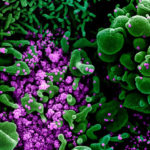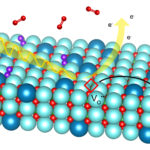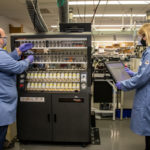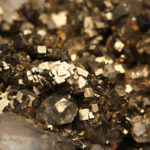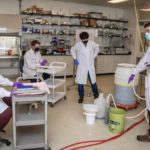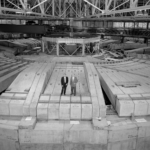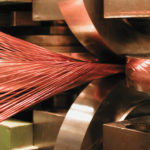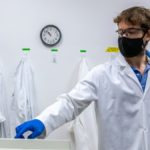Scientists from three national labs have published a comprehensive study that – alongside other recent, complementary studies of coronavirus proteins and genetics – represents the first step toward developing treatments for COVID-19.
Latest News
Scientists Uncover a Different Facet of Fuel Cell Chemistry
X-ray beams at the Advanced Light Source allowed researchers to “see” oxygen gas molecules adhere to a specially prepared electrode surface, an important step in the electrochemical reaction taking place in fuel cells.
What if We Could Give Viruses a One-Two Punch?
Researchers at Stanford and Berkeley Lab’s Molecular Foundry have developed virus-killing molecules called peptoids. The technology could make possible an emerging category of antiviral drugs that could treat everything from herpes and COVID-19 to the common cold.
This Crystal Impurity Is Sheer Perfection
Scientists at Berkeley Lab and UC Berkeley have developed a nanoparticle composite that grows into 3D crystals. The new 3D-grown material could speed up production and eliminate errors in the mass manufacturing of nanoscale photonics for smart buildings or actuators for robotics.
One-of-a-Kind Course Aims to Build the Bioeconomy Workforce
A new course that takes place at Berkeley Lab’s Advanced Biofuels and Bioproducts Process Development Unit gives UC Berkeley students hands-on experience with bioprocessing equipment, preparing them for careers in the biopharmaceutical, industrial biotech, or food tech industries.
Bevatron Site Recognized for Historical Contributions to Physics
The site of the former Bevatron, a particle accelerator at Berkeley Lab that operated from 1954 to 1993, has been designated a historic site by the American Physical Society for its exemplary contributions to physics.
Key to Carbon-Free Cars? Look to the Stars
A research team co-led by Berkeley Lab has demonstrated that the chemistry behind the formation of carbon compounds in the early universe could inform cleaner combustion engines.
Cabling for Large Hadron Collider Upgrade Project Reaches Halfway Mark
Berkeley Lab has passed the halfway mark in the multi-year process of fabricating crucial superconducting cables as part of a project to upgrade the Large Hadron Collider (LHC) at CERN. This upgrade, now in progress, will greatly increase the facility’s collision rate and its scientific productivity.
Cyclotron Road Announces Newest Cohort of Entrepreneurial Fellows
This month a dozen scientists and engineers will join a prestigious two-year fellowship program at Cyclotron Road based at Berkeley Lab and UC Berkeley. Fellows will embed for two years at Berkeley Lab as they develop new commercial solutions to the world’s most pressing scientific challenges.
Are Heavy Metals Toxic? Scientists Find Surprising New Clues in Yeast
Scientists at Berkeley Lab and UC Berkeley have compiled the most complete library yet of lanthanide heavy metals and their potential toxicity – by exposing baker’s yeast to lanthanides. Their findings could help researchers uncover hidden pathways between lanthanide metals and disease.


